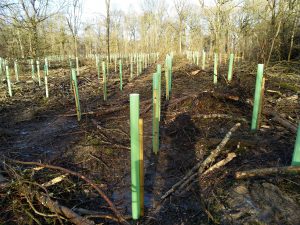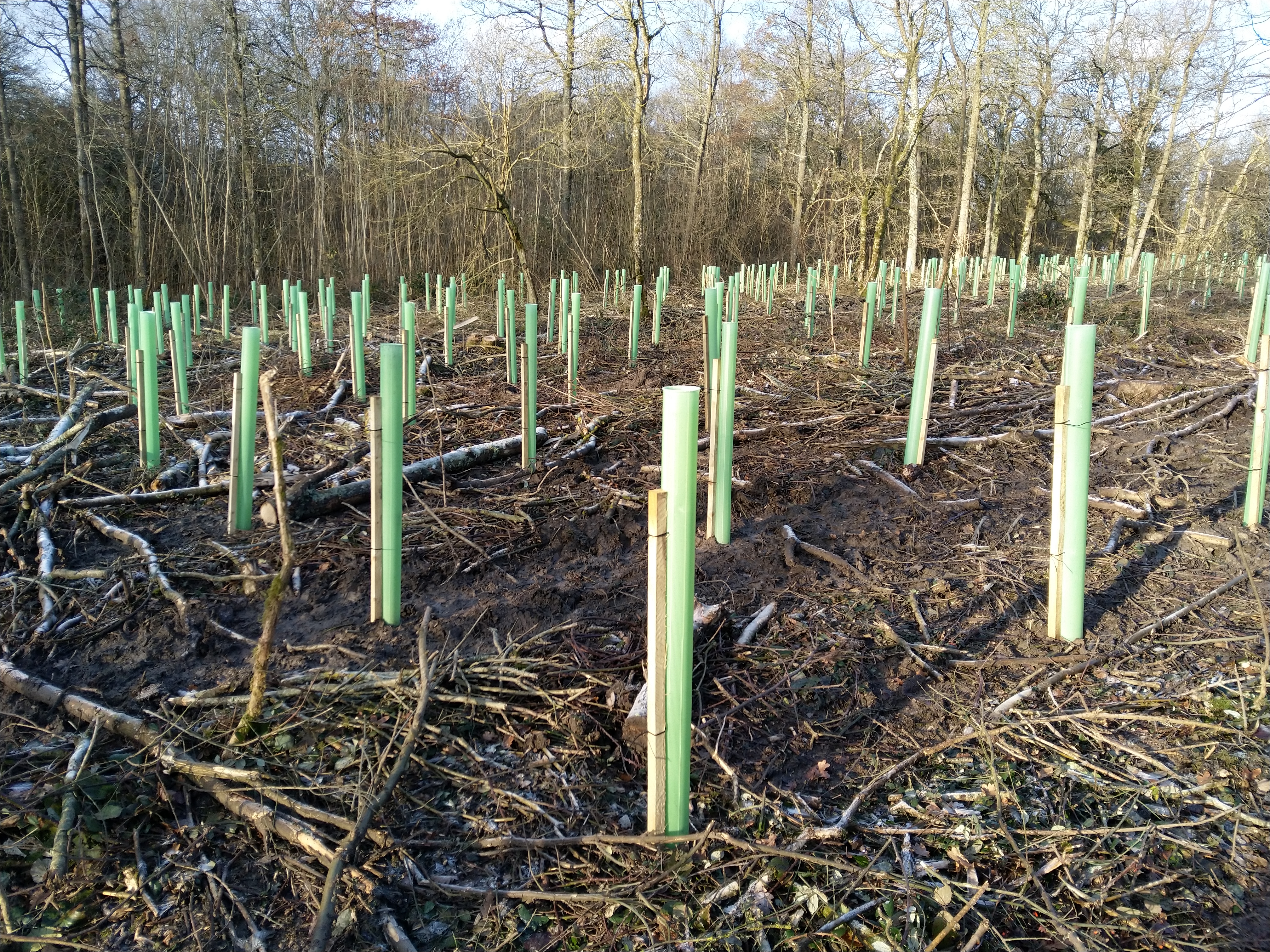
At the beginning of December, John (my associate) and I undertook some tree planting in a woodland near Billingshurst on behalf of Pryor & Rickett Silviculture. The work was to restock an area of the woodland that was almost pure ash which had had to be felled due to Ash die-back (Hymenoscyphus fraxineus). This disease is now widespread in the UK, and it is likely that there will be lots more planting work of this nature in the years ahead as woodland owners salvage their ash timber while it is still worth more than just firewood.
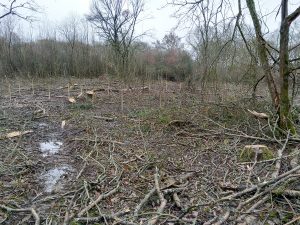
The area to be planted was around a hectare in size, with 1100 trees to go in the ground with stakes and tree guards fitted to each. We were re-stocking with a mixture of species, including oak, Wild Service Tree, alder and aspen. The owner of the woodland has a biomass boiler, and so we were also planting Italian Alder which, alongside the native alder and aspen, will provide a fast growing, sustainable crop for years to come.
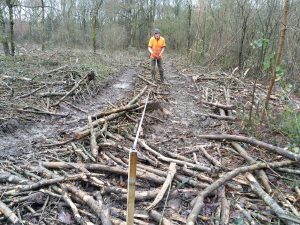
The first job was to lay out the site. This wasn’t particularly easy as the site had been mostly felled by harvester and there was a lot of brash left on the ground which we had to negotiate. However, we soon got into our stride and before long the site started to look more like a plantation.
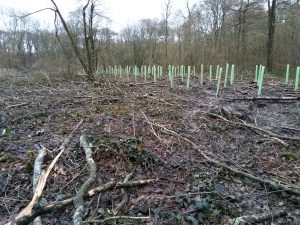
We began by planting the oak interspersed with the Wild Service Trees. Wild Service (Sorbus torminalis) is one of our rarest native hardwood trees and also my favourite. A member of the same family as Rowan and Whitebeam, it is considered an ancient woodland indicator where it occurs naturally. The species can be found elsewhere in this particular woodland, so it was nice to be able to add a few more.
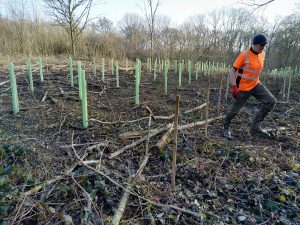
We planted the alders, which made up the majority of the planting, and the aspen over the remainder of the site. This will obviously facilitate easier harvesting in future years. The job took us 6 days in total, mainly due to the site conditions. It was hugely satisfying to complete, knowing that we were planting for the future and helping to regenerate an area of woodland that had been ravaged by ash die-back.
